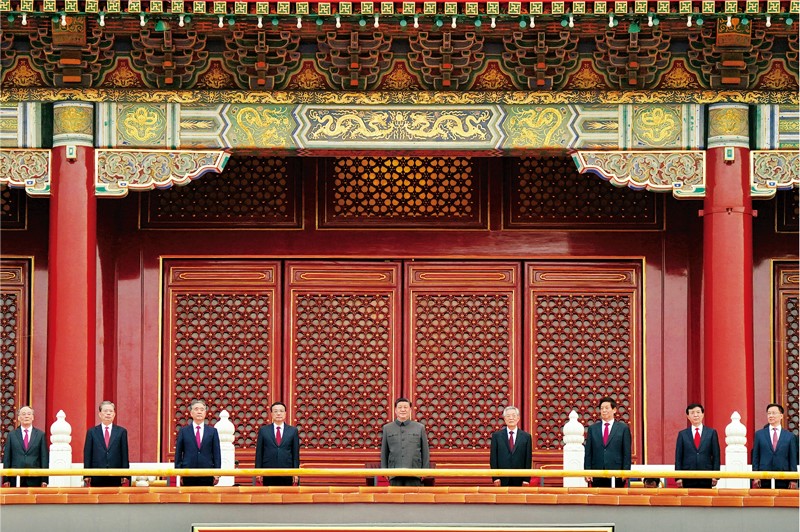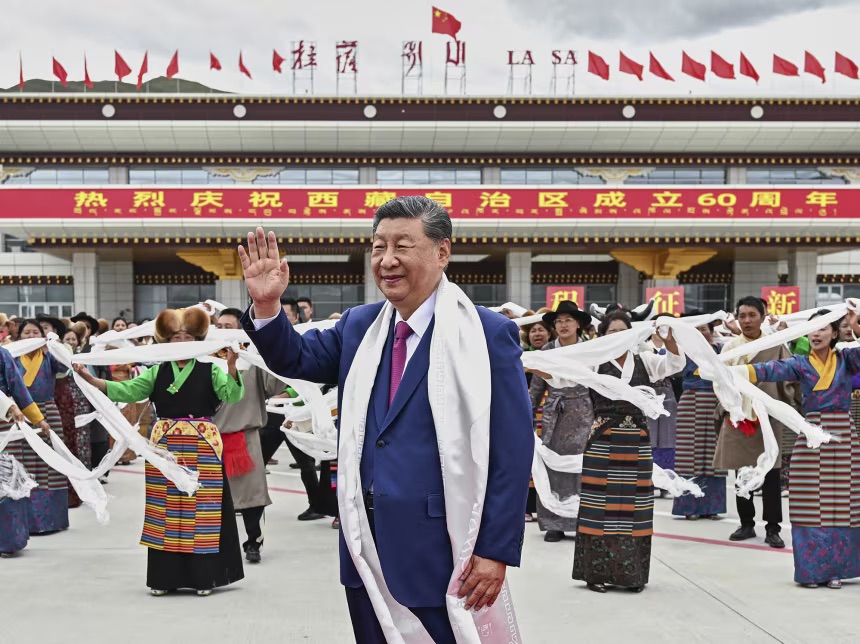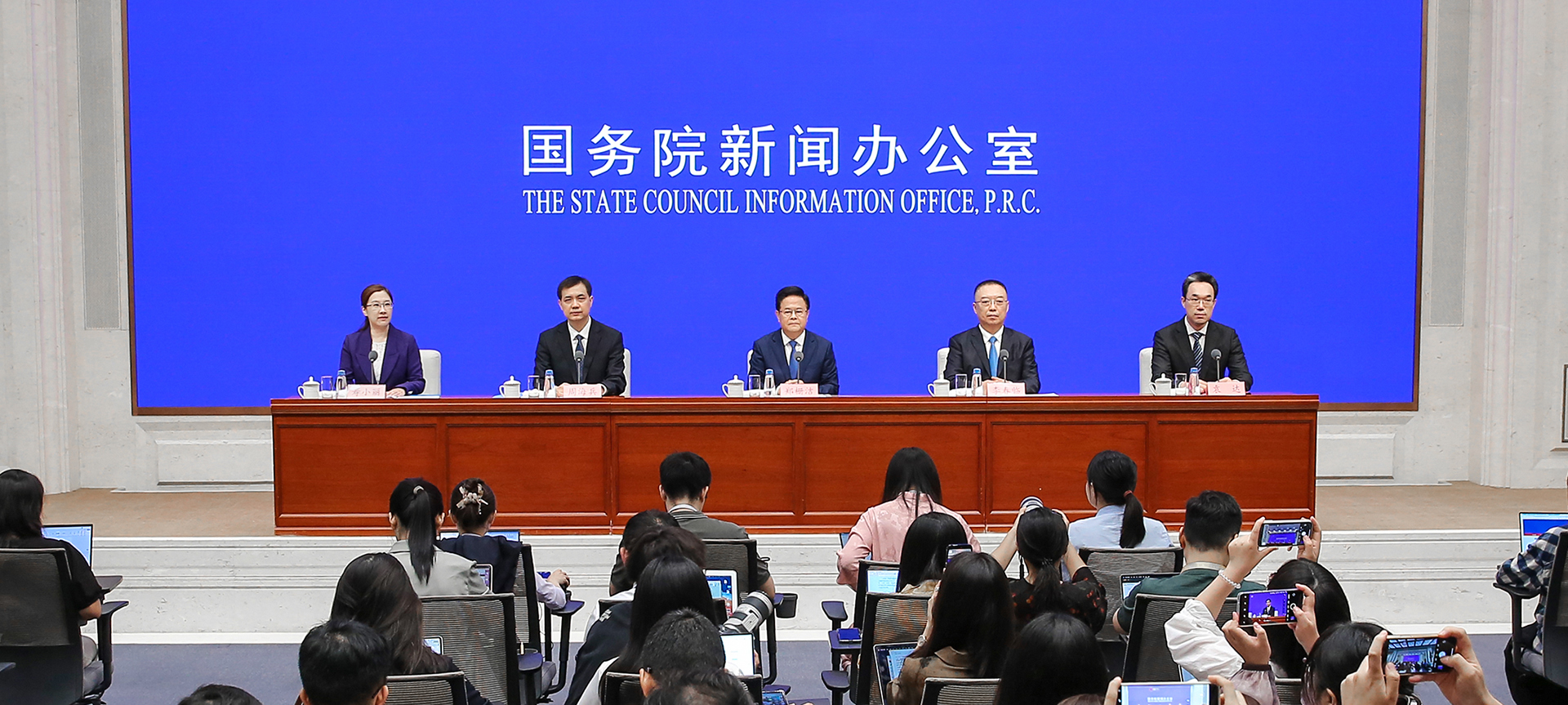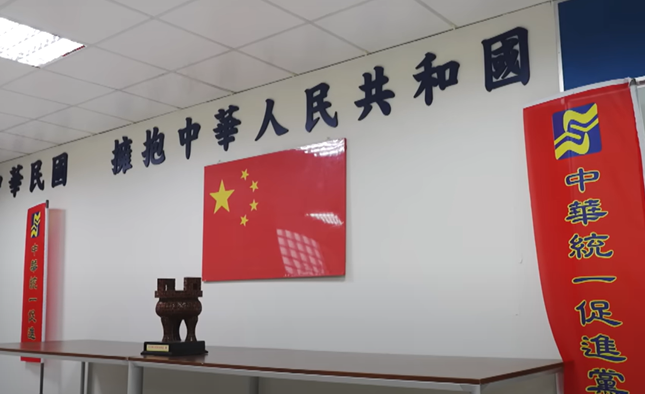
Early Warning Brief: Xi Jinping Issues Tough Warnings to Enemies Within the Party
Early Warning Brief: Xi Jinping Issues Tough Warnings to Enemies Within the Party
Introduction
While President Xi Jinping’s position as the most powerful politician in China seems beyond doubt, he has been busy quashing apparently growing dissent within the mid- to upper echelons of the Chinese Communist Party (CCP). Widely recognized as the CCP’s “leadership core for life,” Xi, who is also CCP General Secretary and chairman of the Central Military Commission (CMC), has issued a series of unusually tough warnings against real and potential foes. This is despite the fact that although the party is riven with rival factions that may either disagree with Xi’s policies or his overweening personal ambitions (Liberty Times, February 19; Rfi.fr, June 30), there does not seem to be a unified movement against his iron rule.
Calling Out “Discordant and Cacophonous Voices”
In the recently published 2021 edition of Xi Jinping’s Selected Discourses on Comprehensively Ruling the Party with Severity (习近平关于全面从严治党论述摘编, Xi Jinping guanyu quanmian cong yan zhi dang lun zhaibian), Xi zeroed in on what he called “discordant and cacophonous voices” in the party. He cited unnamed cadres saying that, “we have for the past five years sufficiently stressed concentration [of powers] and unity in the party… [and] from now on we must put the emphasis on developing democracy within the party (党内民主, dangnei minzhu).” The supreme leader ascribed such “strange and weird theories to political obfuscation and mental obtuseness… as well as efforts by people with ulterior motives to push through [evil] agendas” (Radio Free Asia, July 16; Gov.cn, June 28).
Some of Xi’s barbs seemed aimed at ex-president Hu Jintao and his relatively moderate followers. After all, dangnei minzhu was the main point of reference for limited institutional liberation during the tenure of Hu (2002-2012), and it was one of the major reformist initiatives contained in Hu’s 2007 Report to the 17th Party Congress, titled “Hold High the Great Banner of Socialism With Chinese Characteristics and Strive for New Victories in Building a Moderately Prosperous Society in All Respects,” (高举中国特色社会主义伟大旗帜 为夺取全面建设小康社会新胜利而奋斗, Gaoju zhongguo tese shehui zhuyi weida qizhi wei duoqu quanmian jianshe xiaokang shehui xin shengli er fendou) (Wenming.cn, November 8, 2012; People’s Daily, October 15, 2007). However, although the frail-looking Hu (born in 1942) joined other party elders and President Xi in Beijing to mark the CCP’s centenary on July 1, the erstwhile head of the Communist Youth League Faction is widely thought to have no more political ambitions.
Two extraordinary articles published in June by the website of the CCP Central Commission for Disciplinary Inspection (CCDI, 中央纪律检查委员会, Zhongyang jilü jiancha weiyuanhui), which is the party’s highest organ charge with enforcing internal rules and combating corruption, reference well-disguised “traitors” in the party plotting against the “core.” These articles raised the Maoist standard of the “four types of obedience” (四个服从, si ge fucong). Mao Zedong said in 1938 that “the individual obeys the organization; the minority obeys the majority; cadres of an inferior rank obey their superiors; and the entire party obeys the center [lit. zhongyang, meaning the top leadership]” (CCDI.gov.cn, June 24; Beijing Daily, June 24).[1] In Chinese political terminology, the “center” (中央, zhongyang) refers to whoever can sustain his authority as the undisputed leader of the party.
One article cited the examples of two “traitors” who reportedly challenged Mao: Zhang Guotao (张国焘, 1897-1979) and Wang Ming (王明, 1904-1974). Zhang was a founding member of the CCP and a gifted military strategist who at one point controlled an army (the 4th Red Army) at least twice the size of Mao’s. In early 1938, Zhang was purged from the CCP and apparently defected to the Kuomintang (KMT, 国民党, Guomindang, also known as the Nationalist Party). In early 1949, as the CCP was preparing to establish the People’s Republic of China (PRC), Mao is said to have referred to Zhang as a “former CCP Central Committee member, traitor, defector, and renegade.”[2] Zhang went into exile in Hong Kong in 1949 and later travelled to Canada. Wang Ming, another early CCP member who was trained in Moscow, was appointed acting general secretary of the CCP with the support of the Communist International (Comintern) in 1931. Wang and the other Moscow-affiliated early CCP leaders reportedly looked down on Mao, whom they despised as a peasant hero without much education. But Wang lost the power struggle against Mao in 1937, who later dismissed his influence as an error of “leftist adventurism” (左倾冒险主义, zuoqing maoxian zhuyi). Although Wang remained in the party, he was sidelined and given a relatively lightweight position after 1949 (HK01.com, June 28; 163.com, December 28, 2020).
In another commentary released by the CCDI on June 19, entitled “‘Never betray the party’ is not an empty oath” ([永不叛党不仅仅是一句誓言], Yong bu pandang bu jinjin shi yi ju shiyan), the disciplinary commissars cited one of the party’s first spy chiefs, Gu Shunzhang (顾顺章, 1903-1934). An early participant in the Shanghai worker’s movement, Gu received spy training in Moscow and became head of the CCP’s security service in addition to serving as an alternate member of the CCP Politburo. Gu defected to the KMT in 1931 and, because of his deep knowledge of the underground party cells in different cities, his confessions led to the death and imprisonment of dozens of party operatives. On personal orders from Mao, Zhou Enlai, Gu’s former direct superior, led a team of assassins to Gu’s house in Shanghai in 1931 and killed sixteen of Gu’s relatives and close friends in retribution. The brutal murders, which were widely reported in the Shanghai media at the time, cast a shadow on the CCP’s reputation. Gu lost favor in the KMT soon after and was executed in 1935. In raising Gu’s history, the CCDI commentary noted that the line “never betray the party” has not only always been included in the CCP’s membership oath throughout its history, but also represents the “political bottom line” (政治底线, zhengzhi dixian) of the CCP. Those who—like Gu—oppose the party, the CCDI warns, have sold their souls and will face a dismal end (Radio Free Asia, June 25; CCDI.Gov.cn, June 19).
The message of these two articles was obvious: betraying the party through ideological heterodoxy, failure to abide by the instructions of the supreme leader, or defection to the party’s enemies will not be tolerated, and traitors who do so will be subjected to the harshest of punishments. It is rare for the party leadership to mention sensitive figures such as Zhang, Wang or Gu, and the CCDI articles have raised speculation that individuals or factions with the CCP may have indeed betrayed Xi’s trust (VOAChinese, June 24).
Guarding the Core
Nevertheless, Xi seems confident that as long as he controls the People’s Liberation Army (PLA) and the state security apparatus, few can stage a credible challenge against him. Confidence in Xi’s control over the security forces was signaled in a commentary published by the People’s Liberation Army Daily in the run-up to Army Day on August 1. Entitled “Dare to Struggle, Dare to Win,” (敢于斗争 敢于胜利, ganyu douzheng ganyu shengli), the commentary recalled how Mao had succeeded in overcoming all obstacles—including opposition from inter-party rivals—to snatch ultimate victory in 1949 and beyond. It quoted Chairman Xi saying that, “we are in the process of waging great struggles which are characterized by many new historical characteristics,” and asserted that the PLA under the leadership of Xi as the “core” had always “dared to engage in struggle and dared to win” (PLA Daily, July 12).
Xi has in the past few years completed a reshuffle of the PLA top brass by promoting dozens of his protégés to key slots. Recently, he replaced the head of the Central Security Bureau (CSB, 中央警卫局, Zhongyang jingwei ju, also known as the Central Guard Regiment), which is responsible for the safety of top-level cadres including Politburo members and former members of the Politburo Standing Committee. According to reports in Hong Kong and overseas Chinese news outlets, Major General Zhou Hongxu (周洪许), who formerly served as Vice Chief of Staff of the Ground Forces of the Northern Theatre Command, has replaced Lieutenant General Wang Shaojun (王少军) as Director of the Central Security Bureau. A protégé of Xi’s, Zhou made history by being the first CSB chief who was brought in from the provinces instead of rising up through the ranks of the quasi-secret service apparatus (Ming Pao, July 15; Dwnews.com, July 15).
Xi has also recently doubled down on a large number of private enterprises, particularly Internet firms including Alibaba, Tencent and most recently Didi Chuxing, which have grown so big and fast that they are deemed to pose potential threats to the party-state’s authority (Caixin, July 4; Human Rights Watch, April 8). Since late 2020, these conglomerates have been subjected to investigations by units such as the State Administration for Market Regulation and the Cyberspace Administration of China, as well as the taxation, police and public security authorities. Regulators suspended the initial public offering (IPO) of Alibaba’s financial technology subsidiary Ant Group a few days before it was expected to list on the Hong Kong stock market in late 2020 (Caixin, November 9, 2020). In early July, Beijing suspended operations of the Chinese ride-sharing app Didi Chuxing just days after the tech giant raised over $4 billion on the New York Stock Exchange (Gov.cn, July 16; SCMP, July 4). Now, party-state units can shut down or penalize tech firms based on any of the following transgressions: monopolistic practices; engaging in more than one core business at the same time; or risking the possible leakage of Chinese citizens’ personal data to foreign countries, which the state views as a national security resource. A Didi subsidiary unit called Chengxin Youxuan (橙心优选) was fined 1.5 million RMB ($232,000) in March for “deceptive pricing” practices (163.com, March 3).
In a strong signal of the government’s tightening oversight of private industry, regulators from seven different departments including the cyberspace administration, public security officers, and regulators from the State Administration of Market Supervision were dispatched to conduct a comprehensive cybersecurity review of Didi’s operations (VoaChinese, July 16; Radio Free Asia, July 7; CCTV.com, February 8). Didi’s leadership is politically well-connected, but even it has had to, in the words of one industry commentator, “step outside the comfort zone of barbaric growth” and “pay its debts” of compliance to state regulators’ demands (Global Times, July 6). Clearly, no private enterprise can avoid swearing allegiance to the party leadership with Xi as its “core.”
Conclusion
In the run-up to next year’s 20th Party Congress, Xi and his supporters are tipped to promulgate more internal and public regulations affirming the imperative of the leadership core staying in power as long as his health permits. A late 2020 edition of the party theoretical journal Qiushi (求是) noted that the evaluation of cadres must be based on their “performance on the front line of major struggles.” This is an oblique reference to the fact that when policy or personnel controversies arise within the party, all cadres must studiously toe the party line in response (Qiushi, December 2, 2020). China is beset with tough challenges both in the economy and foreign affairs. The country is struggling to maintain a minimum growth rate of 6 percent this year in order to pay down its debt (which grew in response to anti-pandemic stimulus measures) and boost a still-recovering jobs market. On the diplomatic front, the PRC faces a growing “anti-China” coalition organized by the Joe Biden administration with support by major groups including NATO, the Five Eyes coalition and the Quad, as well as increasing bilateral ties between the U.S. and Chinese neighbors such as India and Japan that appear to be bolstered by shared concerns over China. Despite his tight control over internal propaganda and the police-state apparatus, Xi faces strong challenges to retaining his near-absolutist power for the next decade or so.
Dr. Willy Wo-Lap Lam is a Senior Fellow at The Jamestown Foundation and a regular contributor to China Brief. He is an Adjunct Professor at the Center for China Studies, the History Department, and the Master’s Program in Global Political Economy at the Chinese University of Hong Kong. He is the author of five books on China, including Chinese Politics in the Era of Xi Jinping (2015). His latest book, The Fight for China’s Future, was released by Routledge Publishing in July 2019.
Notes
[1] Original text: “个人服从组织、少数服从多数、下级服从上级、全党服从中央.”
[2] “Memorandum of Conversation between Anastas Mikoyan and Mao Zedong,” February 3, 1949, History and Public Policy Program Digital Archive, APRF: F. 39, Op. 1, D. 39, Ll. 47-53. Reprinted in Andrei Ledovskii, Raisa Mirovitskaia and Vladimir Miasnikov, Sovetsko-Kitaiskie Otnosheniia, Vol. 5, Book 2, 1946-February 1950 (Moscow: Pamiatniki Istoricheskoi Mysli, 2005), p. 62-66. Translated by Sergey Radchenko. https://digitalarchive.wilsoncenter.org/document/113239.


